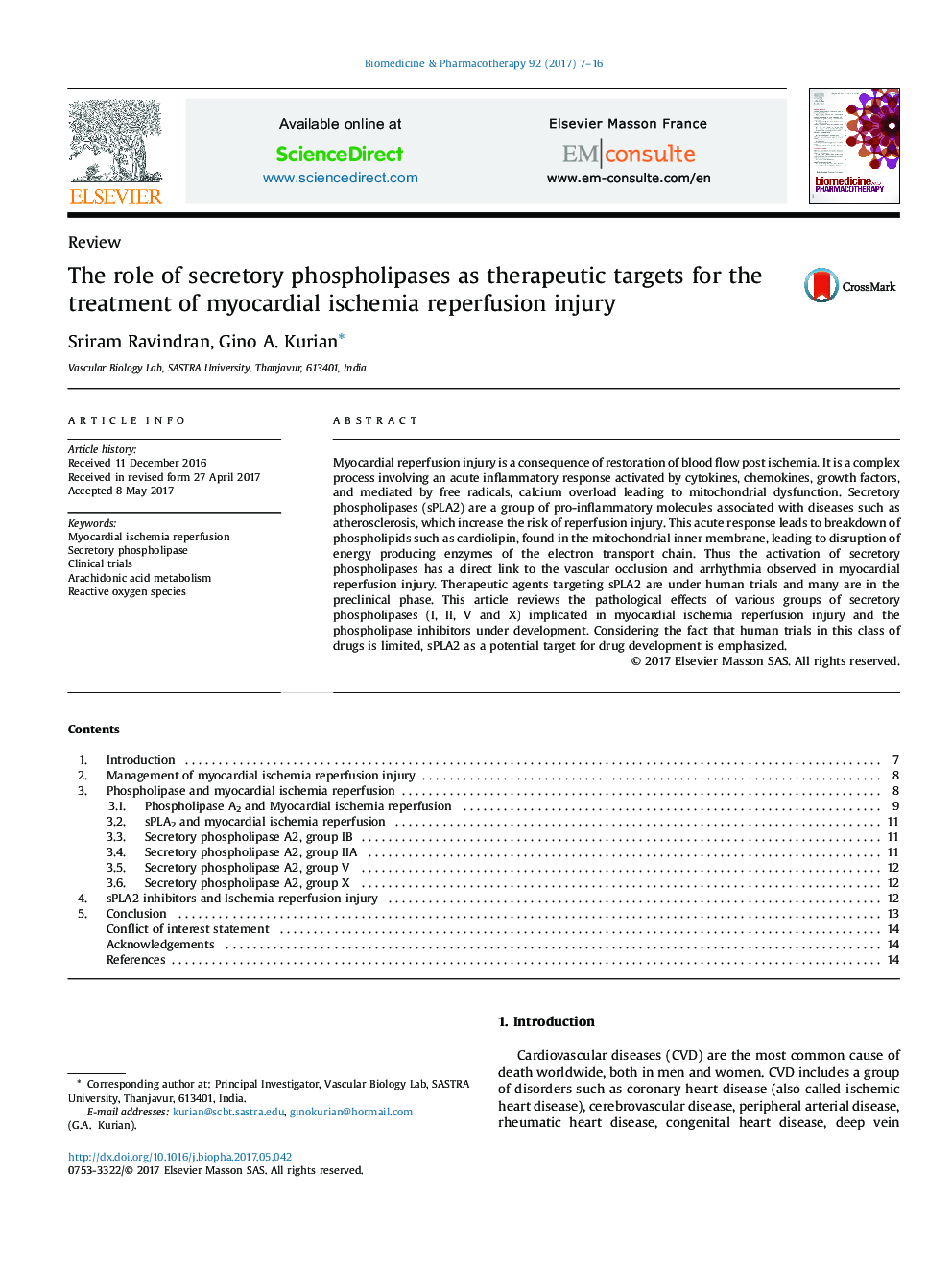| Article ID | Journal | Published Year | Pages | File Type |
|---|---|---|---|---|
| 5552695 | Biomedicine & Pharmacotherapy | 2017 | 10 Pages |
Myocardial reperfusion injury is a consequence of restoration of blood flow post ischemia. It is a complex process involving an acute inflammatory response activated by cytokines, chemokines, growth factors, and mediated by free radicals, calcium overload leading to mitochondrial dysfunction. Secretory phospholipases (sPLA2) are a group of pro-inflammatory molecules associated with diseases such as atherosclerosis, which increase the risk of reperfusion injury. This acute response leads to breakdown of phospholipids such as cardiolipin, found in the mitochondrial inner membrane, leading to disruption of energy producing enzymes of the electron transport chain. Thus the activation of secretory phospholipases has a direct link to the vascular occlusion and arrhythmia observed in myocardial reperfusion injury. Therapeutic agents targeting sPLA2 are under human trials and many are in the preclinical phase. This article reviews the pathological effects of various groups of secretory phospholipases (I, II, V and X) implicated in myocardial ischemia reperfusion injury and the phospholipase inhibitors under development. Considering the fact that human trials in this class of drugs is limited, sPLA2 as a potential target for drug development is emphasized.
